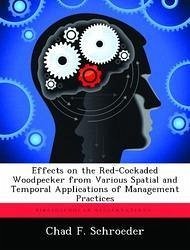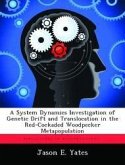The Red-Cockaded Woodpecker (RCW) is am endangered species endemic to the southeastern pine forests in the United States. RCWs are cooperative breeding birds that live together in clusters of old-growth pine trees (over ninety years old) in which they construct their nesting cavities. The cavities are constructed in living pines, which are predominantly longleaf pines. RCWs also forage upon older pines (over thirty years old) for their mainly insect diet. Moreover, RCWs prefer to forage on longleaf pines. There are many Department of Defense (DoD) installations in the southeastern United States that contain RCW populations. The Endangered Species Act, along with other DoD regulations, requires installations to protect the RCWs and restore their habitat. Different strategies are used to manage the RCW. A popular management practice converts off-site (non-native) pines back to a region's indigenous pines. Conversion provides the best long-term RCW habitat; however, the initial habitat fragmentation from off-site pine removal may be detrimental to RCW populations. Shaw AFB, SC manages a small RCW population on the Poinsett Weapons Range (PWR).
Hinweis: Dieser Artikel kann nur an eine deutsche Lieferadresse ausgeliefert werden.
Hinweis: Dieser Artikel kann nur an eine deutsche Lieferadresse ausgeliefert werden.








